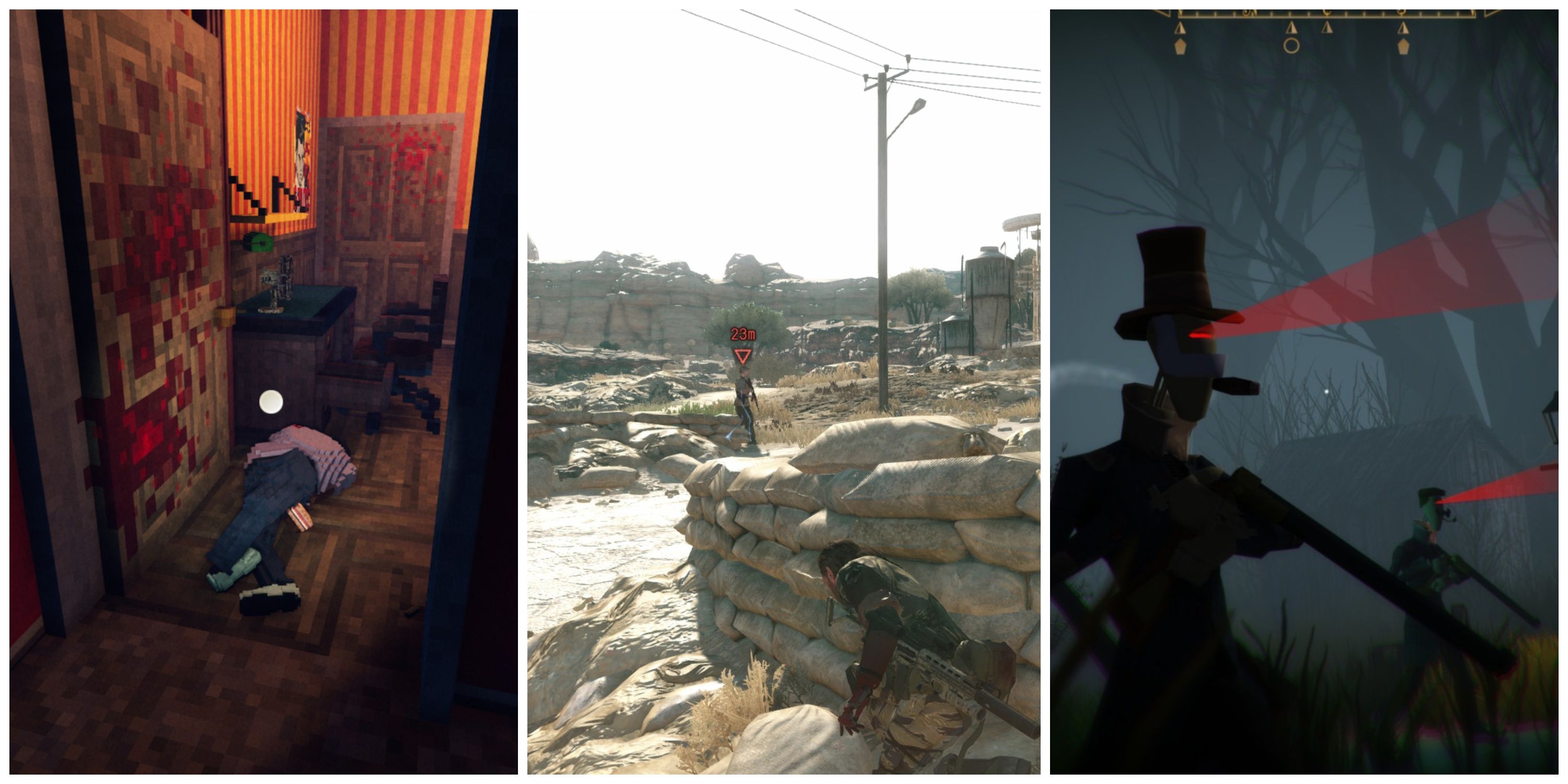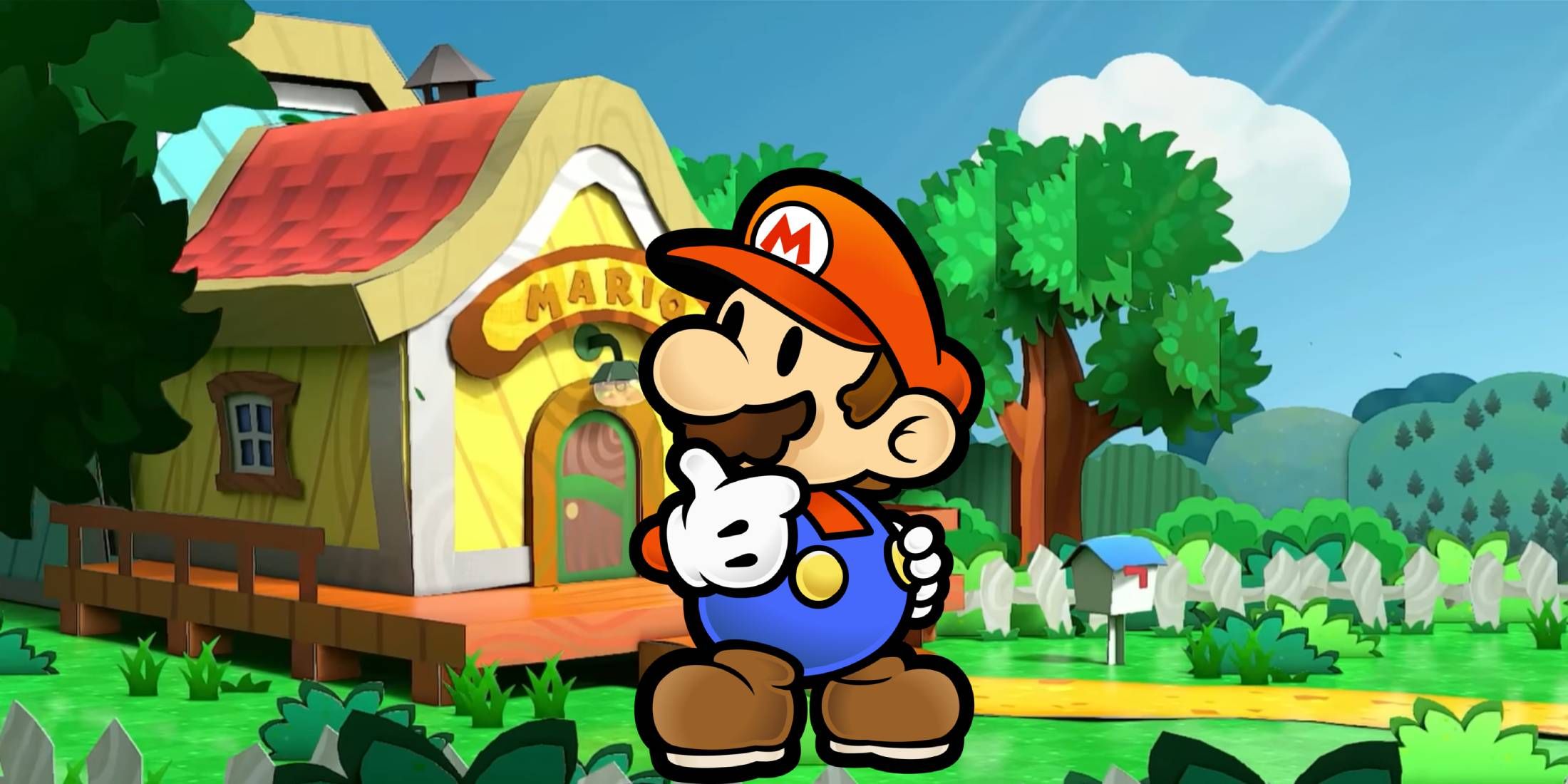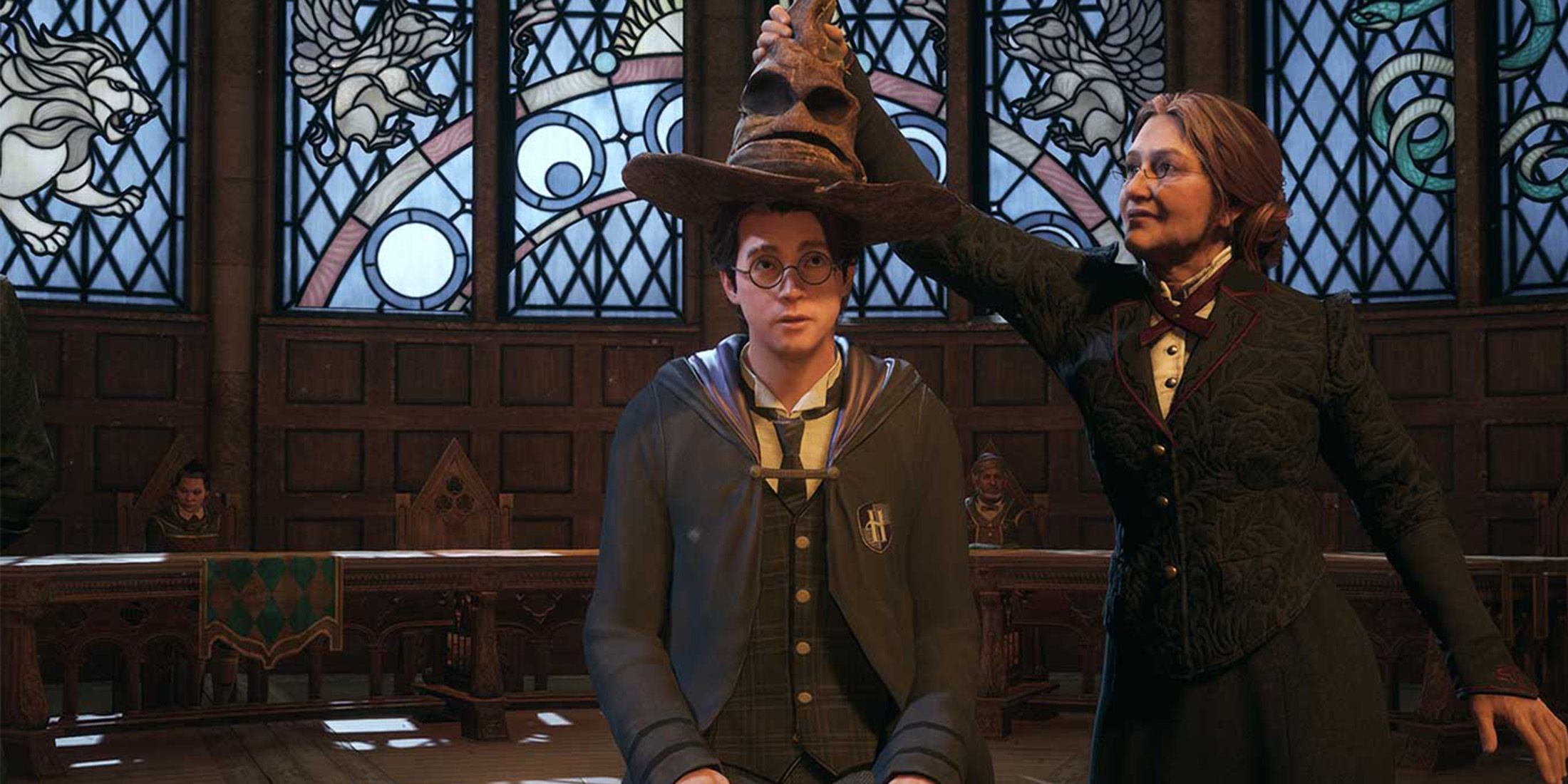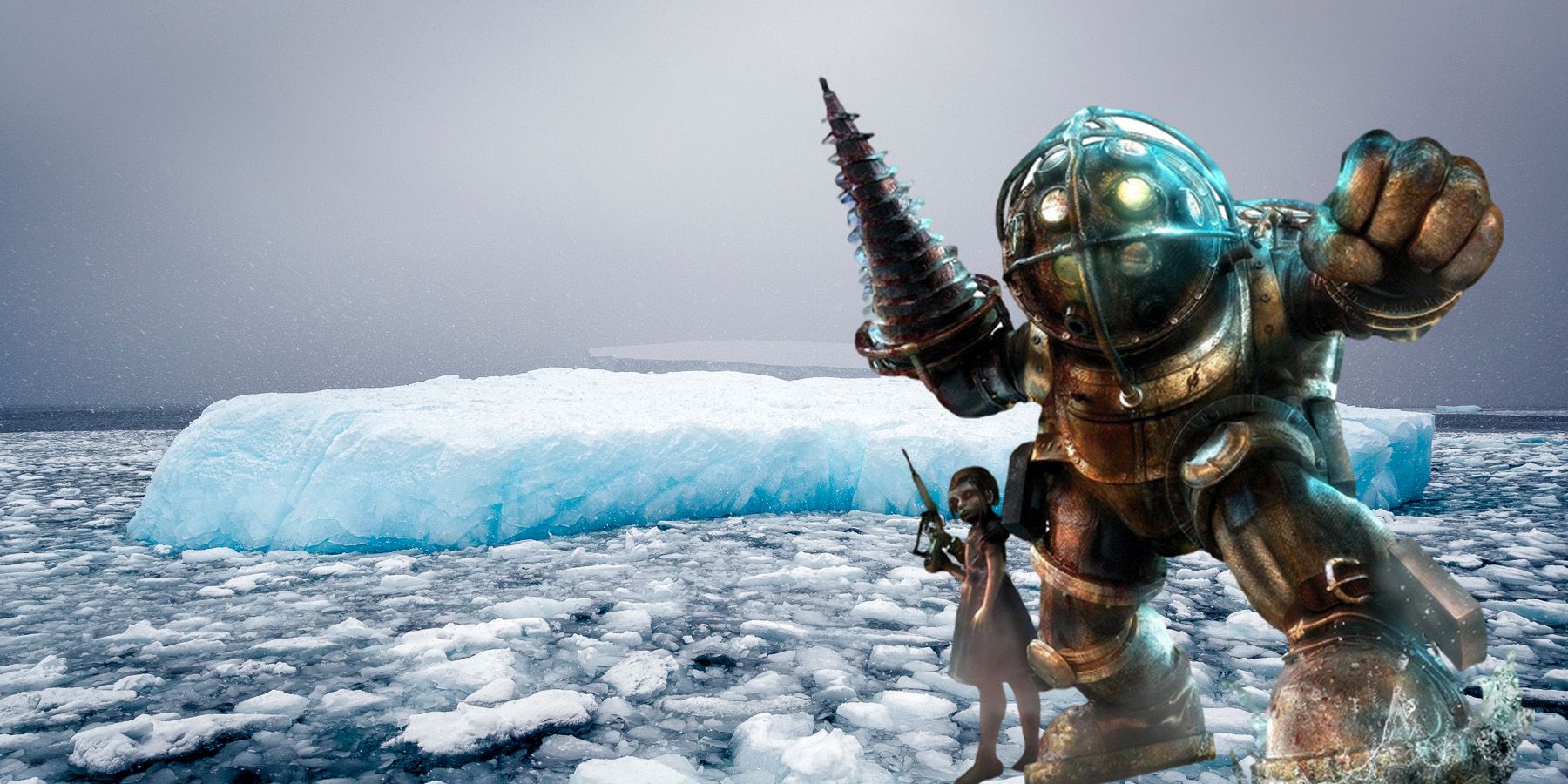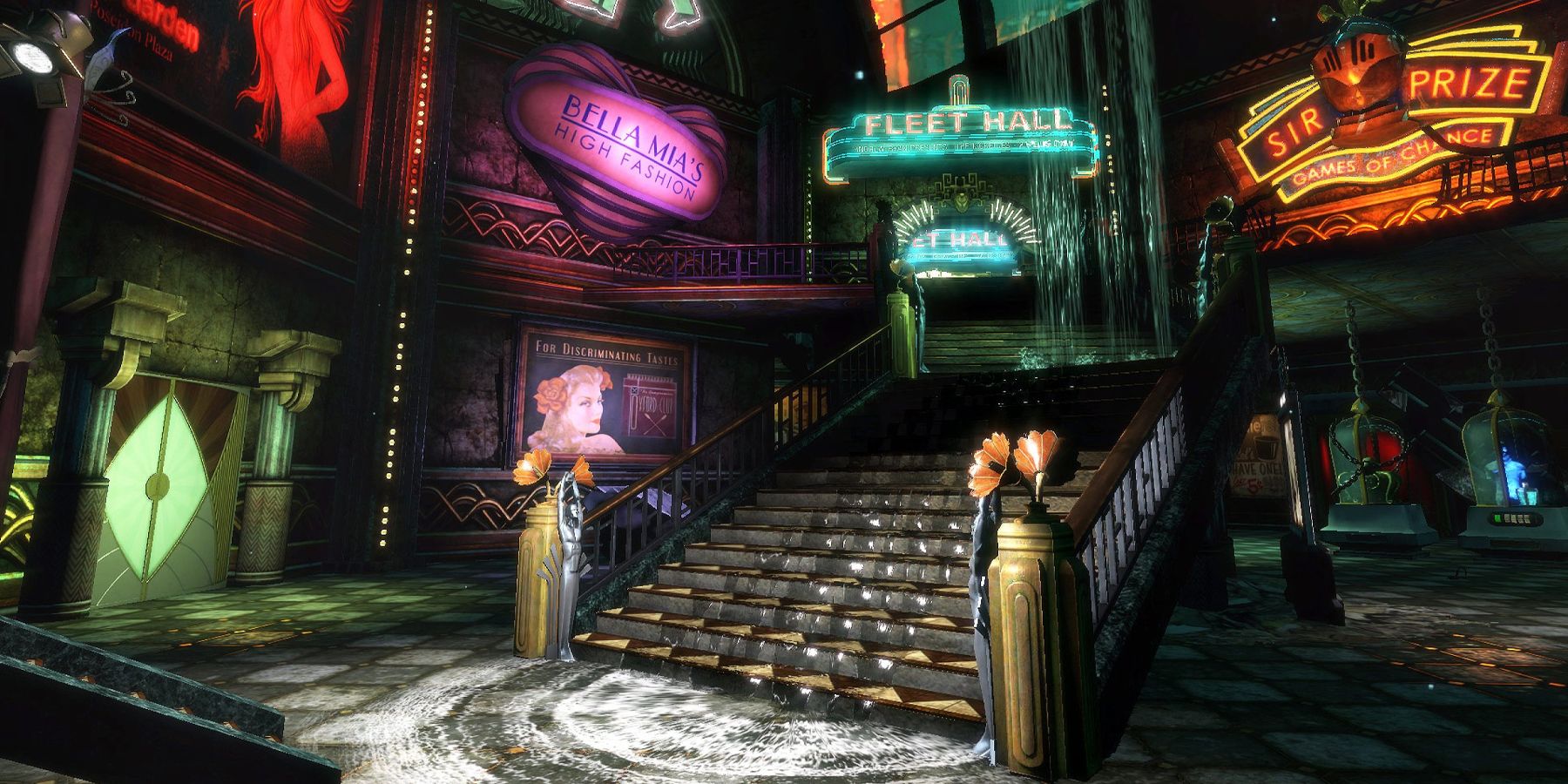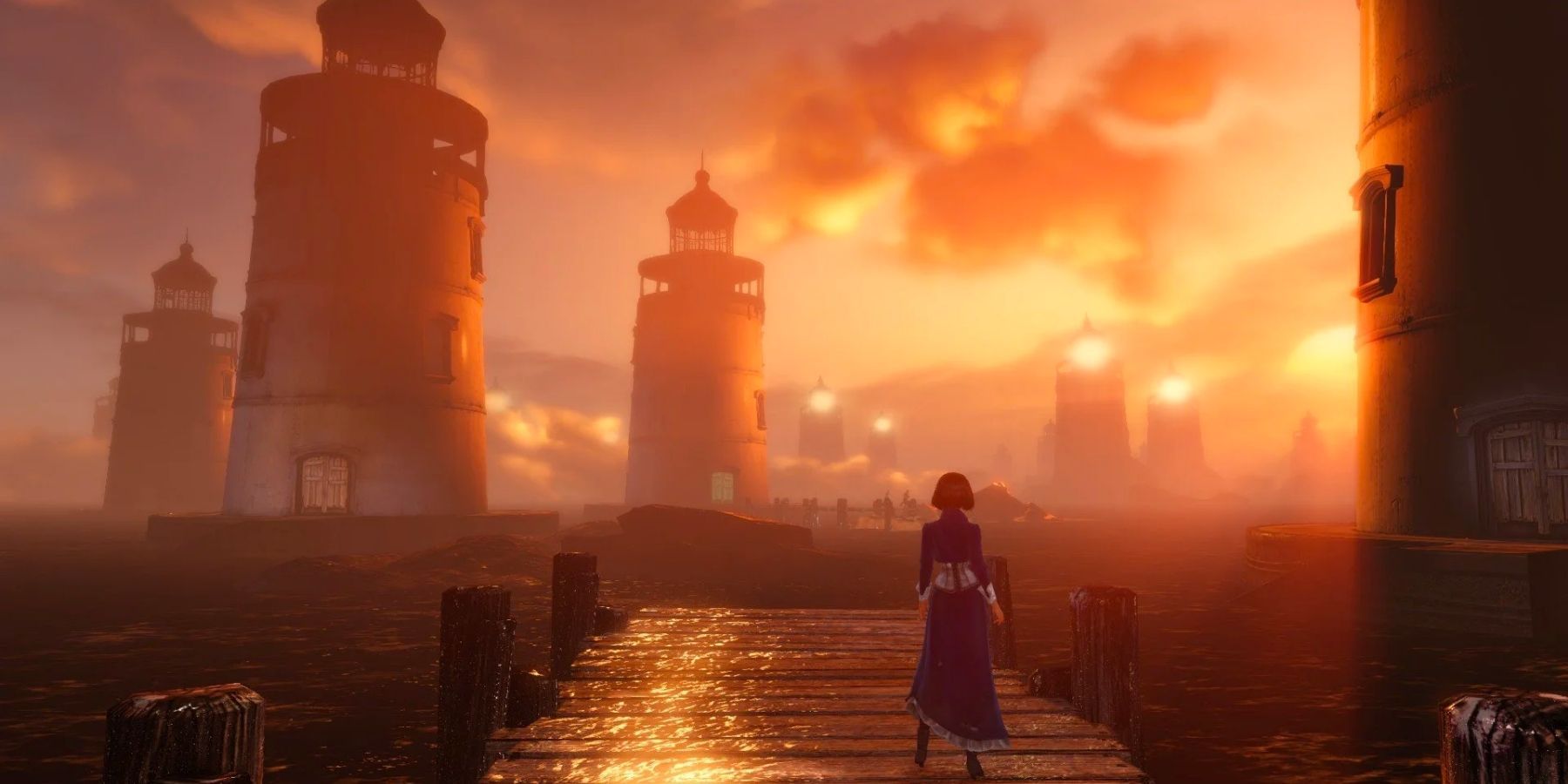BioShock is one of gaming's most unique franchises, with overt political messaging weaved into the main narrative of all of its releases. Equally important are components like tone, gameplay, and setting, with the franchise often being praised for its use of the latter. Cloud Chamber is at the helm of the latest installment, so there's still question marks surrounding how well the upcoming title will live up to the previous games, as they all seem to share a common theme of irregularity. 2007's BioShock is far from predictable, and being a significant break from the norm in the first-person shooter genre made it truly beloved. BioShock 4 has to capture the same magic that was present in abundance in the past, and it could all start with where the game takes place.
From the deep, dark, and claustrophobic maze of Rapture to the false-utopian hellscape of Columbia, any great BioShock experience lives or dies by its ability to create and utilize a gorgeous, immersive, and dangerous world. Environmental storytelling was nothing new when BioShock hit shelves, with Irrational Games' own System Shock 2 going far to popularize the genre. BioShock 4 will almost certainly follow the same format, so it has to wield the perfect location, inviting players to explore all it has to offer in search of its secrets.
Won't You Come On Down to Rapture
The submerged setting of BioShock and BioShock 2 is one of the very finest in all of video games. Its haunted halls and decaying walls are stuffed with dense atmosphere around every corner, and the tone that both games so heavily rely on is a direct result from what Rapture offers. The civil war that happens between objectivist creator Andrew Ryan and Frank Fontaine renders the city under the Atlantic Ocean a dystopian nightmare rather than the utopian ideal that it set out to be. It's a location that offers so much narrative potential, and though the first two games have delved into some of its darkest areas, there's still so much more to explore.
Not only is Rapture an architectural and tonal masterpiece, but the people that reside within its rotten abodes are always intriguing and have so much more that they can contribute to the franchise. Characters like Sander Cohen, Brigid Tenenbaum, Jasmine Jolene, and Andrew Ryan himself have so many layers, often changing drastically between what they were when Rapture was at the height of its popularity and at its most unsettling state. Returning to Rapture during either time would be an exciting reintroduction to personalities that are as complex and wield as much potential as the city itself once did.
In Space No One Can Hear You Scream
Games like Prey, Tacoma, and Alien: Isolation have proved that the space setting can provoke a lonely, suppressive, and thick atmosphere. The deep recesses of space are so very different to what is experienced on Earth, and the lack of understanding of the setting means players will likely never feel comfortable. BioShock is a franchise that excels at making its fans feel like they don't belong in the setting it creates, so finding an abandoned space station or crash-landed rocket ship would be a great way to pull players away from home.
As BioShock dragged players to the depths of the Atlantic and BioShock Infinite lifted them to the skies, there's only a few directions the franchise can go, and rocketing fans to the unknown would be a change for the series that is also proven to be an exciting and effective means to tell a great story. System Shock 2 did this, so it's clear that there's potential in the space setting.
BioShock's Multiverse Allows Many Possibilities
With BioShock Infinite confirming an unending number of parallel universes it would be a shame to see BioShock 4 disregard the potential it brings. Setting the upcoming game in a specific place (anywhere from a bustling city to an unknown Antarctic City in the '60s like rumors suggest) but across multiple dimensions and realities could do well to show how the area has changed, evolved, or fallen.
Games like Cris Tales show that the past, present, and future can provoke hugely different tones and aesthetics of the same place. Toying with what BioShock Infinite alluded to in its conclusion would do well to maintain tone and offer unique, ever-changing scenery that keeps the story going at a suitable pace. Narratively, the idea of multiple realities is a double-edged sword as it can be confusing if handled incorrectly. However, BioShock handles heavy themes of objectivism and libertarianism, combating and critiquing them with relative ease. At no point does it feel like a politics lesson, and BioShock 4 would do well to tackle such a puzzling theory in the same simple and easy to follow way that the original did.
BioShock 4 is currently in development.

